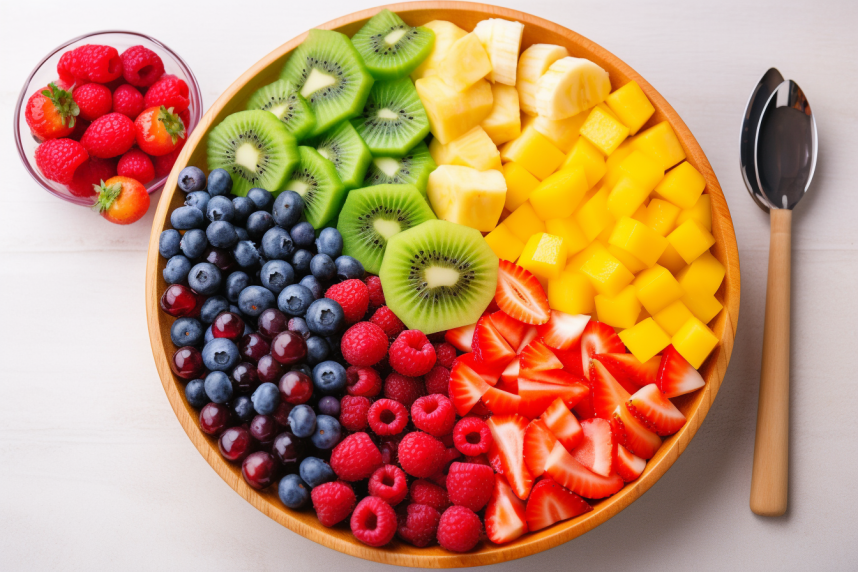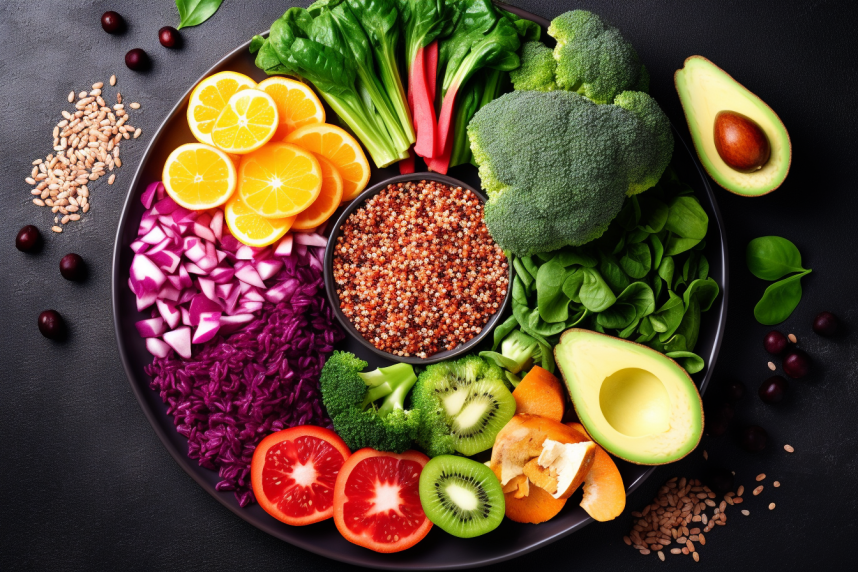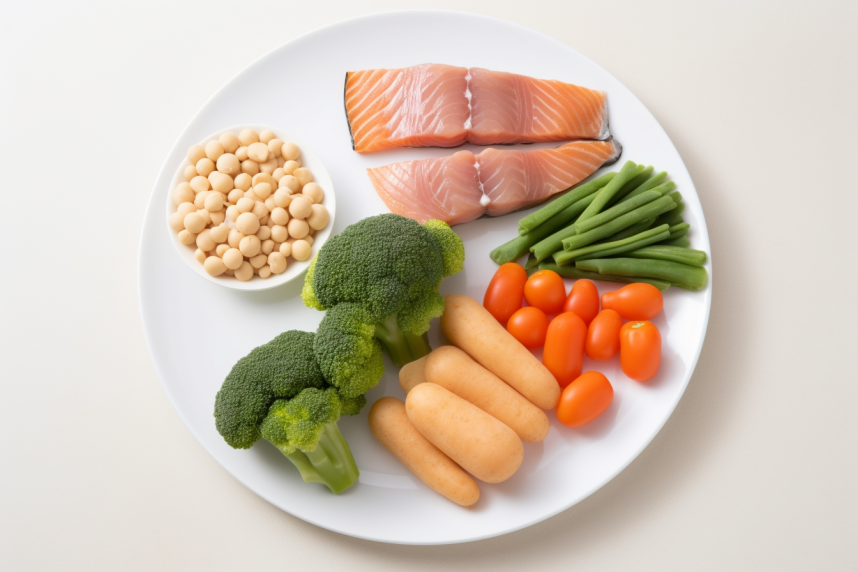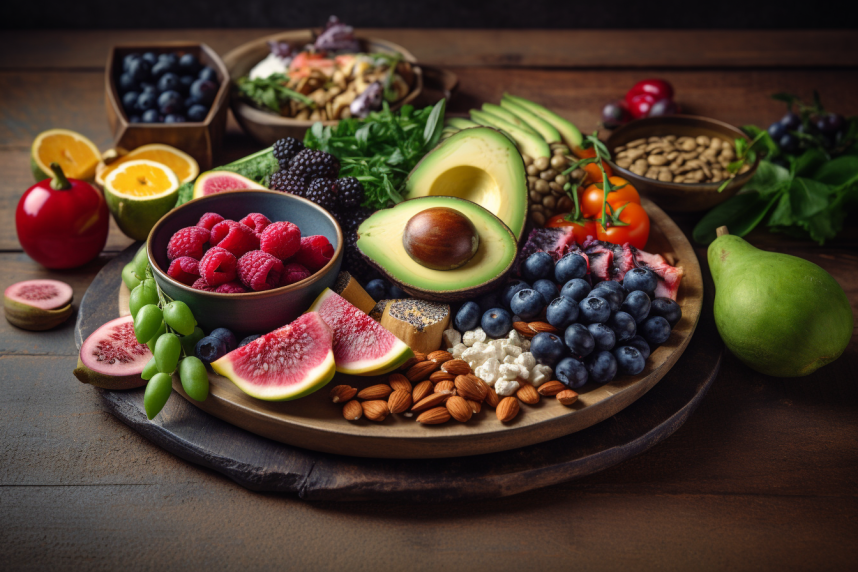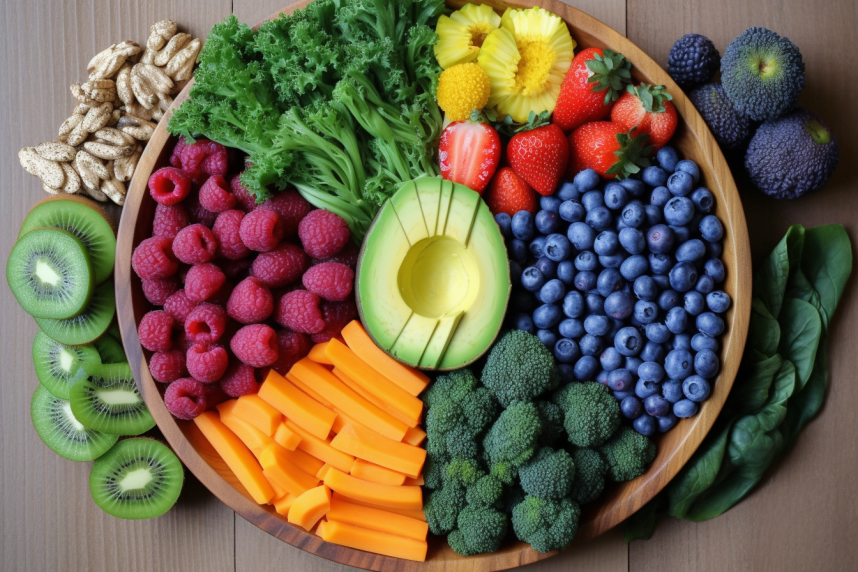Eating healthy can be an intimidating task, but it doesn’t have to be! Taking small steps to make healthier choices can help you build a foundation for a healthier lifestyle. With these seven simple nutrition tips, you can take the first step towards a healthier you.
Imagine how you’ll feel when you start making smarter decisions about the food you eat! You’ll be well on your way to achieving your health goals.
It’s important to remember that there is no one-size-fits-all approach to nutrition. Everyone has different dietary needs and preferences, and it’s important to find what works best for you. However, there are certain core principles that are evidence-based and scientifically-supported.
These seven simple nutrition tips can help you make the right choices for your body and your lifestyle. With just a few small changes, you can start to feel the difference in your overall health and wellbeing.
Eat Whole Grains
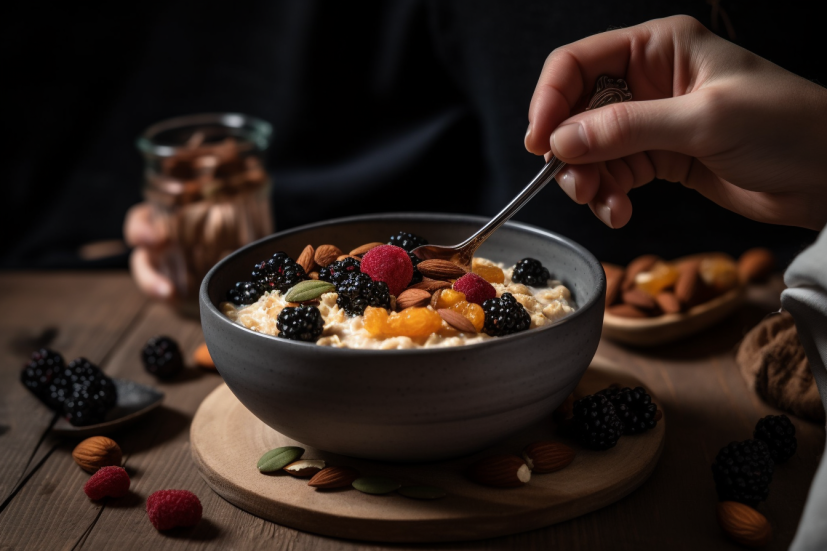
Get the most out of your meals by choosing whole grains – they’ll help keep you feeling your best!
Whole grains are a great source of complex carbohydrates, fiber, and essential vitamins and minerals. They also provide a longer-lasting source of energy than refined carbs, helping you feel fuller for longer and avoid unhealthy sugar crashes. Incorporating whole grains into your diet can help reduce your risk of obesity, Type 2 diabetes, heart disease, and other conditions.
Eating whole grains can also help you maintain a healthy digestive system and promote regularity. To get the most out of your meals, avoid refined carbs and incorporate fiber-rich whole grains like oats, brown rice, quinoa, and bulgur. Additionally, look for 100% whole grain breads, pastas, and more.
Choose foods that are made with whole grains to help you stay healthy and energized!
Incorporate Lean Proteins

Incorporate lean proteins into your diet for a more balanced lifestyle. Lean proteins, such as fish, poultry, and legumes, are important sources of essential amino acids that your body needs for healthy functioning. Eating a balanced diet with lean proteins can help you maintain a healthy weight, reduce your risk of chronic diseases such as heart disease, and improve overall health.
Here are some tips to incorporate lean proteins into your diet:
- Choose lean proteins like fish, lean beef, and poultry.
- Opt for low-fat dairy products, like cottage cheese, yogurt, and milk.
- Replace saturated fats with healthy unsaturated fats, such as extra-virgin olive oil and avocado.
- Reduce portion sizes and monitor your protein intake.
Eating lean proteins is an important part of a healthy eating plan. Incorporating lean proteins into your diet can help you improve your overall health and reduce your risk of chronic diseases. Make sure to select lean proteins, monitor your intake, and reduce portion sizes for a healthier lifestyle.
Include Fruits and Vegetables
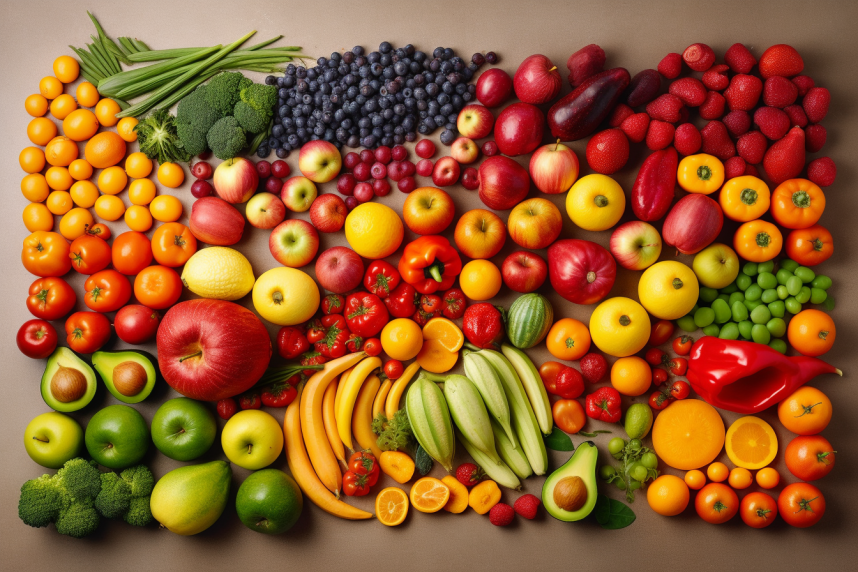
Adding a variety of fruits and vegetables to your diet is a great way to ensure you’re getting essential vitamins and minerals. Choosing organic produce can provide you with the assurance that you’re avoiding pesticide residues and other potentially harmful chemicals.
Additionally, incorporating a variety of colors and textures can help to make meals more interesting and enjoyable. When it comes to portion control, it’s best to stick to the standard serving size or half cup measure. This can be especially helpful when it comes to starchy vegetables, like potatoes, corn, and peas, as they can be packed with calories.
Aim for at least five servings of fruits and vegetables each day to ensure you’re getting the nutrition your body needs.
Limit Processed Foods

Limiting processed foods is key to maintaining a well-balanced diet, and it’s easier than you might think! When it comes to processed foods, it’s important to consider not only what you eat, but also how much. Eating too much of these items can contribute to weight gain and other health risks.
Processed foods like packaged snacks, processed meats, and even some canned items may contain high amounts of added sugars, sodium, and unhealthy fats. Eating these foods in excess can lead to serious health problems such as heart disease, diabetes, and even cancer.
To ensure a healthier lifestyle, opt for whole food items such as fruits, vegetables, lean proteins, and whole grains. Not only are these foods healthier, but they also help to fill you up more quickly, meaning you get more nutrition from fewer calories.
Eating a well-balanced diet that is low in processed foods and high in nutrient-dense items is the best way to ensure a healthy lifestyle.
Choose Low-Fat Dairy

Incorporating low-fat dairy products into your diet is a great way to boost your nutrient intake without overloading on unhealthy fats. Dairy products such as plain yogurt, skim milk, and reduced-fat cheese can be a great way to add flavor to meals while avoiding sugar and controlling portion size.
Here are three great ways you can make this work for you:
- Use plain Greek yogurt as a topping for salads instead of unhealthy dressings.
- Add a splash of skim milk to your morning oatmeal or cereal to make it more filling and nutritious.
- Replace full-fat cheese with reduced-fat cheese in sandwiches and on pizzas.
Low-fat dairy products are an excellent source of essential nutrients like calcium, vitamin D, and protein. Eating low-fat dairy can help you reach your daily nutrient requirements and keep your body healthy and strong. It can also help you maintain a healthy weight, as it’s lower in calories than its full-fat alternatives.
So, give it a try, and get the most out of your nutritional journey!
Cut Down on Salt

Cutting down on salt can make a huge difference in your overall health, and it’s easier than you think! Reducing your sodium intake is key to improving your health and reducing the risk of high blood pressure, heart disease, and stroke.
To reduce your salt intake, start by checking nutrition labels when grocery shopping. Choose foods that are labeled as low-sodium or no-salt-added. Additionally, try using salt alternatives such as herbs, spices, garlic, onion, and lemon juice to add flavor to your meals.
While it might take some time to adjust to the new flavors, you’ll be healthier for it in the long run.
Drink Plenty of Water

Drinking plenty of water can provide you with many health benefits. Staying hydrated helps you maintain a healthy weight, regulate body temperature, and keep your organs functioning properly. It can also help flush out toxins and reduce the risk of developing certain illnesses.
To increase your water intake, try setting reminders on your phone, drinking a glass of water before each meal, and carrying a water bottle with you throughout the day.
Benefits of Drinking Water
Staying hydrated by drinking water can offer numerous benefits for your health and wellbeing. Proper hydration levels are essential for ensuring the body is able to perform optimally, as even slight dehydration can lead to decreased energy levels.
Drinking water can also help to flush out toxins and other impurities from the body, helping to reduce the risk of developing certain health conditions. Additionally, drinking water can help to improve the quality of your skin and hair.
High-quality water can also help to reduce the risk of developing kidney stones and urinary tract infections. Overall, staying hydrated by drinking plenty of water can provide numerous benefits for your physical and mental health.
Tips for Increasing Water Intake
Making small changes to your daily routine can help you increase your water intake and become more hydrated. Building healthy habits is the key to staying hydrated and avoiding dehydration.
For example, try to drink a glass of water when you wake up, and carry a water bottle with you throughout the day. This will help you remember to drink enough water and not forget.
Additionally, set reminders on your phone to drink at least two glasses of water each day. This will help you stay on track and ensure you’re consuming the recommended amount of water.
Additionally, you can add flavor to your water with fruit or herbs to make it more enjoyable. This will help you become more accustomed to drinking water, and it will be easier to drink the amount of water your body needs each day.
Conclusion
You’ve learned the basics of nutrition – it’s time to put them into practice! Eating whole grains, lean proteins, fruits and vegetables, and limiting processed foods can all help you maintain a healthier lifestyle. Low-fat dairy, cutting down on salt, and drinking plenty of water can also make a big difference.
As the old adage goes, “you are what you eat” – so make sure the food you put into your body is of the highest quality. With the right nutrition tips, you can make an impact on your overall health and wellbeing. So go ahead and take the steps to become the best version of you!


